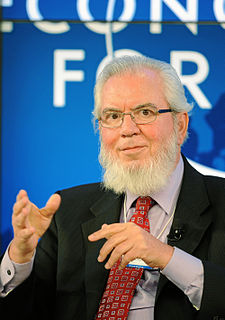A Quote by Guy Standing
In the interests of competitiveness in a globalizing world economy, governments of all complexions introduced labour-market reforms that promoted flexibility but accentuated the precariat's insecurities.
Related Quotes
Although the precariat does not consist simply of victims, since many in it challenge their parents' labouring ethic, its growth has been accelerated by the neoliberalism of globalisation, which put faith in labour market flexibility, the commodification of everything, and the restructuring of social protection.
Nearly one billion women and men, a third of the world's workforce, are either unemployed or unable to earn enough to keep themselves out of extreme poverty. There are 100 million new entrants into the labour market each year. Up to 90 percent in some regions are in the informal economy. 180 million kids are engaged in the worst forms of child labour. Put it all together and it is not only morally unacceptable, but politically dangerous
Throughout history governments have been chronically short of revenue. The reason should be clear: unlike you and me, governments do not produce useful goods and services that they can sell on the market; governments, rather than producing and selling services, live parasitically off the market and off society.


































